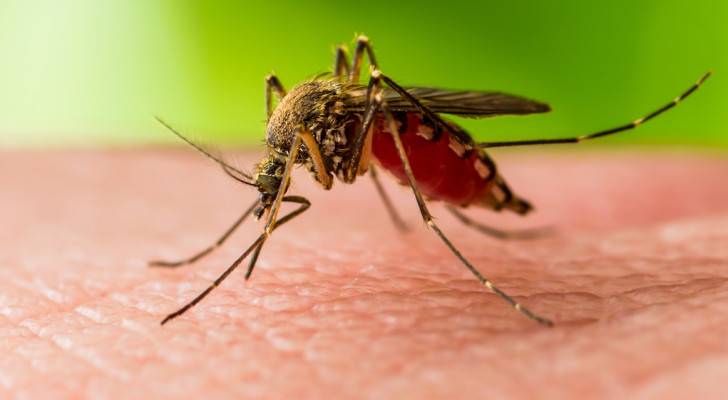Jordan records first case of West Nile Fever
Jordan records first case of West Nile Fever
The Ministry of Health has reported that the first case of West Nile virus has been detected through its surveillance program conducted in selected areas. The case was confirmed by the Ministry's laboratories.
Dr. Raed Al-Shboul, the Secretary-General of the Ministry of Health for Primary Health Care and Epidemics, stated that the case involves a 6-year-old girl who is in stable condition, recovering, and under medical supervision.
Al-Shboul noted that the selected areas for the fever surveillance program are geographically representative. He emphasized that the disease does not spread from person to person and does not pose a public health concern.
He assured that the Ministry of Health has a robust surveillance program capable of detecting and diagnosing cases in the laboratory.
What is West Nile Fever?
West Nile Fever is a viral infection transmitted to humans through the bites of infected mosquitoes.
The West Nile virus is part of the Flaviviridae family and is primarily spread in tropical and temperate regions of the world.
Virus transmission
- Mosquitoes: The virus is mainly transmitted by certain species of mosquitoes, such as Culex mosquitoes.
- Birds: Birds are the natural reservoir for the virus, with the virus cycling between birds and mosquitoes.
- Rare cases: The virus may be transmitted through blood transfusions, organ transplants, and from mother to baby during pregnancy or breastfeeding.
Symptoms
- Most cases: About 80 percent of infected individuals show no symptoms.
- Mild symptoms: Around 20 percent of those infected experience mild symptoms such as fever, headache, body aches, nausea, vomiting, swollen lymph glands, or a rash.
- Severe symptoms: Approximately 1 percent of cases can develop severe illness involving encephalitis or meningitis, leading to symptoms like severe headache, high fever, neck stiffness, confusion, tremors, paralysis, and coma.
Diagnosis
Laboratory Tests: The infection can be diagnosed through blood tests or cerebrospinal fluid tests to detect antibodies against the virus or the viral RNA.
Treatment
- No specific treatment: There is no specific treatment for West Nile virus. Management focuses on relieving symptoms and includes rest, adequate fluid intake, and pain and fever relief medications.
- Severe cases: Severe cases require hospitalization and may need respiratory support and intensive medical care.
Prevention
- Avoid mosquito bites: Use insect repellent, wear long clothing, and stay in air-conditioned or well-screened places.
- Eliminate standing water: Reduce mosquito breeding sites by eliminating standing water around your environment.
- Use of nets and screens: Install screens on windows and doors and use mosquito nets when sleeping.
Geographical spread of West Nile Fever
- Areas of spread: The virus was first identified in Uganda in 1937 and has since spread to large parts of Africa, Europe, Asia, Australia, and North America.
- Statistics: Infection rates vary by country and region, depending on the presence of the mosquito vector and infected birds.




